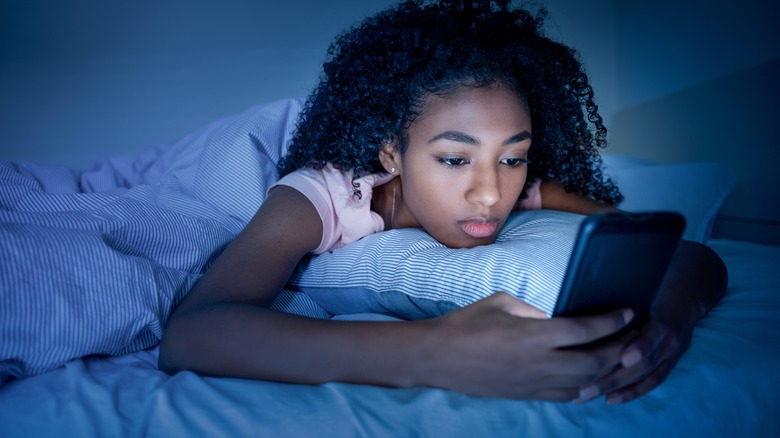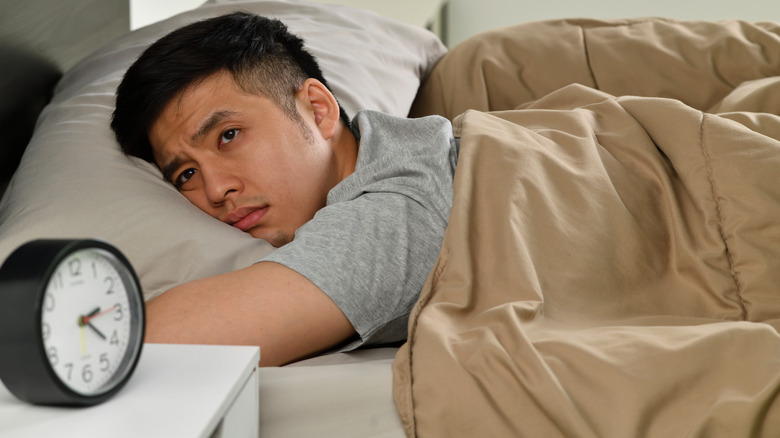Does Blue Light Affect Your Sleep?
We hear a lot about blue light these days. The devices we use, including LED lights, televisions, and computers, emit blue light. Blue light also comes from the sun, and it is around us all day. Blue light suppresses melatonin, which is a hormone that prepares us for sleep. This isn't so much a problem during daylight hours because it helps us stay alert. However, blue light at night can be problematic. Simply put, our brains are not wired to be exposed to blue light all the time. Our circadian rhythms operate on cues from light and darkness and our brains typically know to prepare for sleep as the sun sets (via Sleep Foundation).
When we use devices that release blue light at night, our brains may not pick up on the signals that it is getting close to bedtime. As a result, our circadian rhythms, known as sleep-wake cycles, become out of whack, and that can lead to sleep problems.
You may not sleep as well
If your brain does not release melatonin when it should, it means you might not feel drowsy until later, and it may take you longer to fall asleep (via WebMD). A study published in the Proceedings of the National Academy of Sciences found that people who read on electronic devices before bed experienced a delay of REM sleep and felt less alert the following day. If your circadian rhythm is out of balance persistently, it can contribute to health conditions such as depression and metabolic disorders, per the Sleep Foundation.
The best way to combat the negative effects of blue light at night is to limit the use of electronic devices at night. WebMD recommends not using them for at least one hour before bed. Before then, you can dim the brightness on devices. You can also try apps and light-blocking glasses to reduce the amount of blue light that reaches your eyes.


